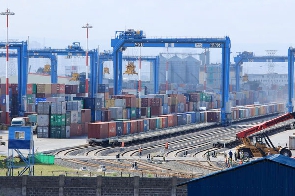 The International Chamber Shipping and International Transport Workers
The International Chamber Shipping and International Transport Workers
The International Labour Organisation (ILO) wants governments to treat seafarers as key workers and be exempted from travel restrictions during the Covid-19 pandemic.
The ILO tripartite maritime committee representing seafarers, ship owners and governments, asked states to facilitate delivery of essential medical supplies, fuel, water, spare parts and provisions to ships.
This follows reports last week that people have been prevented from boarding ships to hand out face masks, overalls and other personal protective equipment to shipping crew.
Also, some ports have refused to allow some ships entry for previously docking in areas affected by Covid-19.
“Seafarers are just as worthy as everyone else and should be treated with dignity and respect to ensure they continue to provide their vital services,” the statement says.
Crucial role
The committee said the flow of essential goods, energy, food, medicines and many other products around the world is not disrupted “by measures that impede the safe and efficient movement of ships and the seafarers who operate them.”
The International Chamber Shipping and International Transport Workers’ Federation says there are more than two million seafarers aboard ships worldwide.
ILO director-general Guy Ryder has asked governments to ensure maritime workers continue to play their “crucial role” and welcomed efforts by social partners, employers and workers’ organisations and the international community to respond to the crisis created by the pandemic in the sector.
Global shipping moves 90 per cent of the world trade and the pandemic has greatly curtailed the working conditions of the nearly two million seafarers as countries impose strict regulations for ships before docking, if at all.
“Visitors to ships should be strictly monitored and provided with personal protective equipment to limit the risk of contagion,” ILO said. The ILO’s MLC, 2006 establishes the minimum requirements for seafarers’ working conditions and the Convention has now been ratified by 96 ILO member states, representing more than 91 per cent of the world’s merchant shipping fleet.